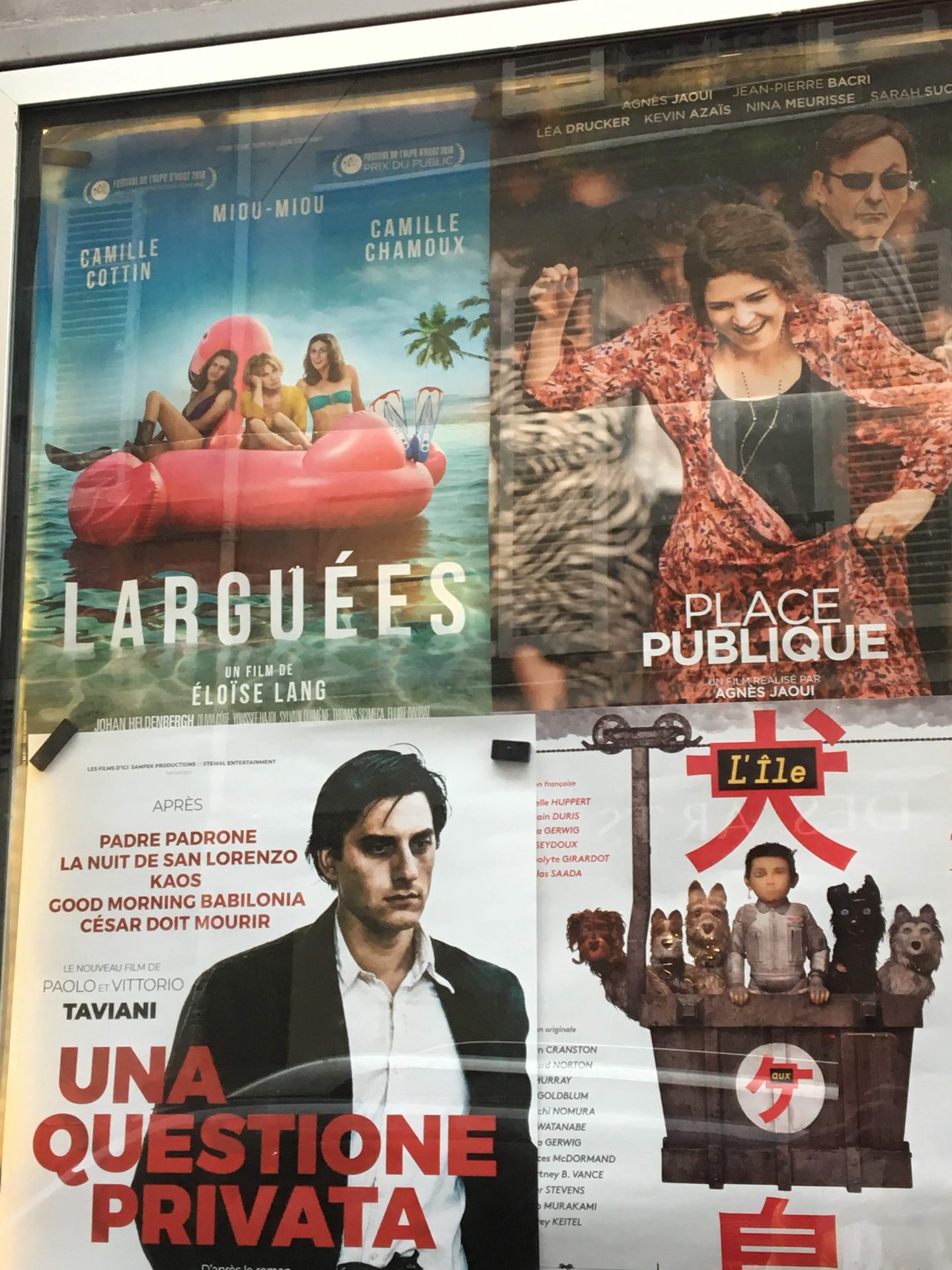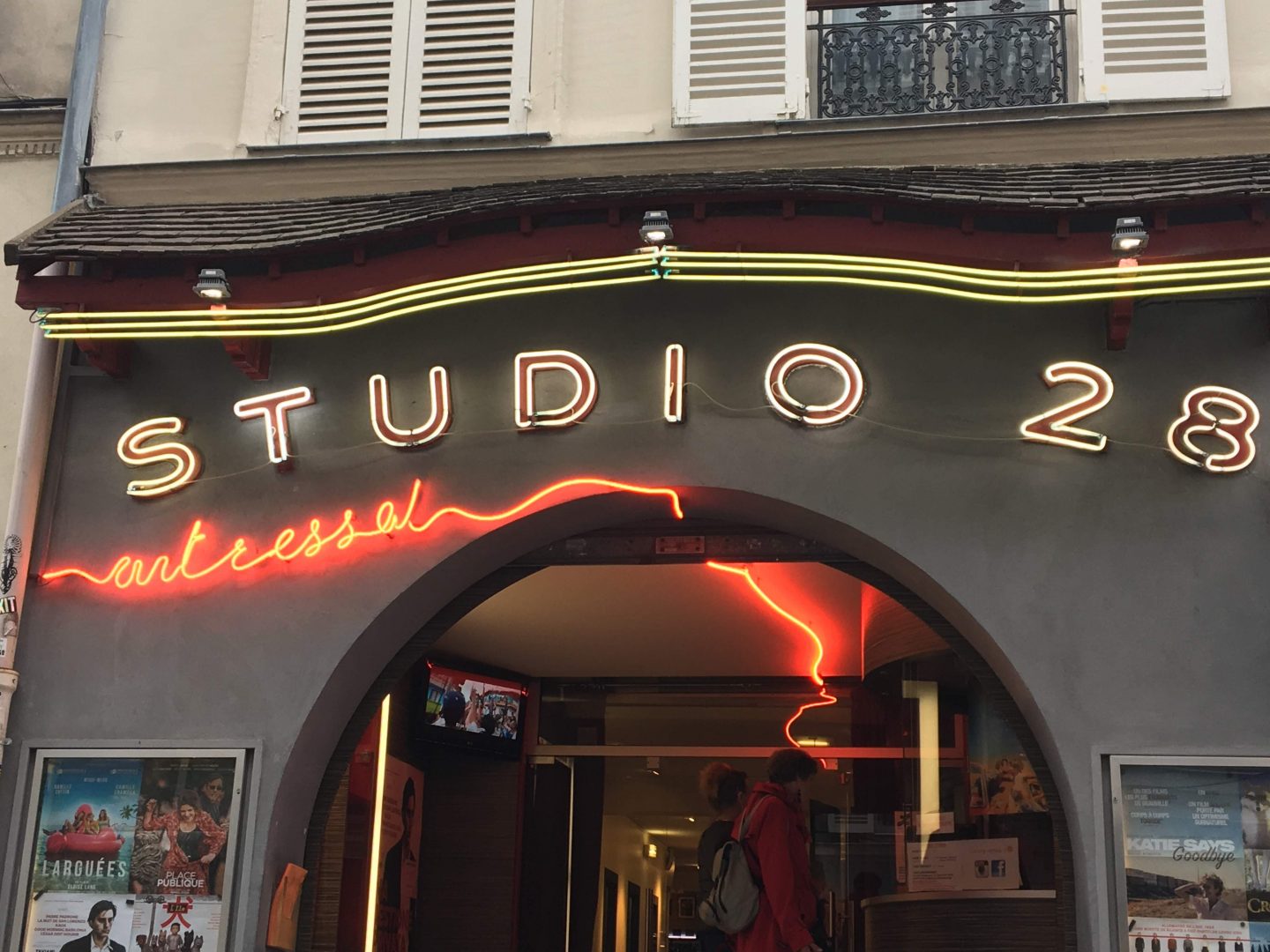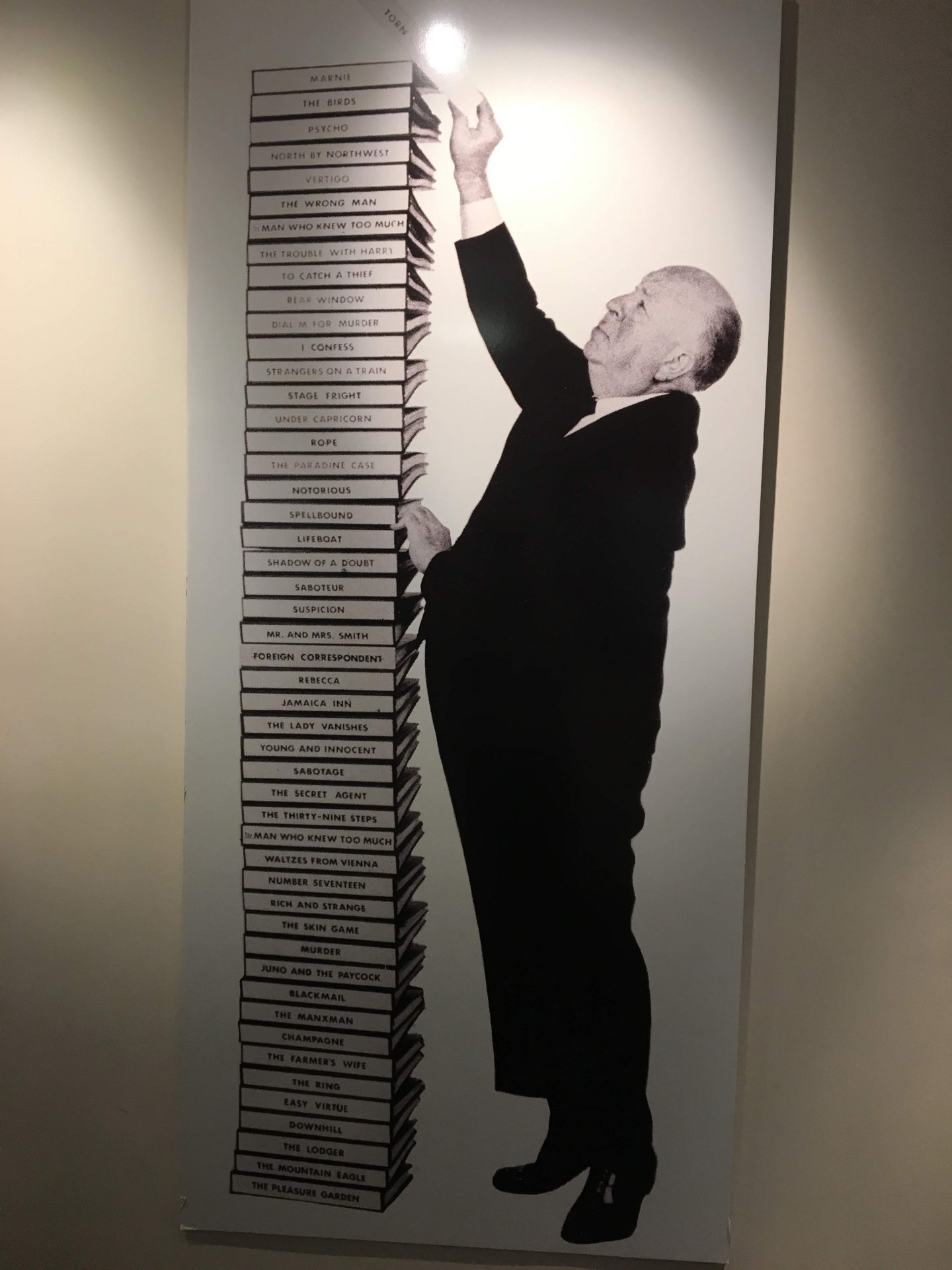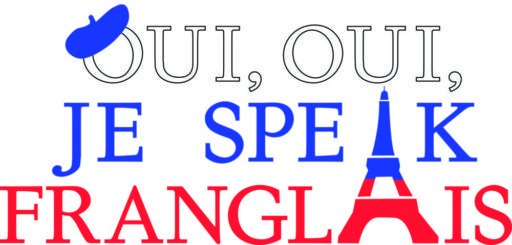Oui, Oui, c’est Friday and it’s movie night with our friends at Lost in Frenchlation! Earlier on this month we caught up with the founder of Lost in Frenchlation, Manon Kerjean in our favorite place in Paris, Montmartre! Before the screening of Place Publique, a film screened at one of Paris’ oldest cinemas, the Cinéma Studio 28! And right before the screening, we enjoyed a few cocktails, and bien sûr got a chance to chat and mingle with an international community of like- minded movie goers! Lights, cameras, MANON KERJEAN!
OOJSF:Why did you start Lost in Frenchlation?
MK: Paris cinemas do not offer recent French films with English subtitles, making them inaccessible to the international community that populates the city year round. We offer a French cinematic experience to the broad international community in order to include them in an important aspect of French culture as well as the opportunity to socialize and meet native Parisians at our cocktail hour either before the screening.
OOJSF: Why the name Lost in Frenchlation?
MK: It was actually my best friend who came up with it! She often makes jokes about claiming royalties on the name [haha]. We love it because it sums up the idea of being lost in a culture because of the language barrier – as in the movie ‘Lost in Translation’ – but with a French twist!
OOJSF: How do you pick the films that are featured?
MK: We choose the films based on which classic and contemporary works we believe people in Paris would want to see as well as what we would like to watch. We then research and source the film with english subtitles from its distributor – more often the copies with the english subtitles are usually from overseas.

OOJSF: What’s your educational/professional background?
MK: I am French and grew up in Paris. I am very passionate about everything to do with French film. As well as making Lost in Frenchlation a success, I am focused on starting my career as a film editor.
OOJSF: Sometimes whilst watching French movies with English subtitles or vice versa… Some of the words don’t translate well, why is that?
MK: Language is such an integral part of a culture, so much so that translations of specific cultural terms/phrases have the chance of being lost in another language.
OOJSF: What should we expect from Lost in Frenchlation in the future?
MK: Our aspirations for the future include having our own independent cinema where we screen French films for the international community on any given day – possibly a cafe/bar attached for the community to socialize and mingle as well. We would also love to screen French films with subtitles in various languages, not just English in order to offer a wider inclusion.
OOJSF: How does your company reinforce the learning of the French language and culture?
MK: When you are watching a French film in the theatre, you hear an abundance of new words, phrases, and slang used in everyday French language that you can immediately incorporate into your vocabulary. This ability allows someone to truly operate at the local level.

OOJSF: How many languages do you speak and do you think being bilingual or multilingual is important?
MK: I speak French, English and Spanish. Growing up, I’ve always been told how important it was to speak different languages, to travel (in Asia, South America,…) and discover new cultures. And now I completely agree! I think it’s a shame that English-speaking countries don’t value language learning compared to other subjects, just because English is spoken around the world.
OOJSF: What’s your fave English film?
MK: My favorite English film is Eternal Sunshine of the Spotless Mind… But the director is French!
OOJSF: What’s your fave French film?
MK: My favorite French film is Betty Blue (37°2 le matin).
OOJSF: Some may argue that it’s better to read the book instead of the adaptation of the film, what do you think?
MK: I’m rarely disappointed when I see an adaptation of a book that I read because I think it’s always interesting to compare a movie-maker vision to yours.
OOJSF: What elements make for a good comedy, horror, romance and drama film?
MK: I am not a big fan of horror movies but I think that if we compare drama genre to comedy, it is definitely harder to make a good comedy than a good drama. Probably one of the most important element in comedies would be rhythm. And for dramas, something we’re able to relate to ourselves.
OOJSF: Most often ,certain groups believe that French films are not diverse enough? Is there diversification in French cinema? If so, how? And how can French film be inclusive to diversify the people on screen.
OOJSF: French cinema is becoming more and more diverse I think, especially since the last Cannes festival in May where this topic was adressed multiple times. Last month, 16 black French actresses wrote ‘Noire n’est pas mon Métier’ to denounce racism in French cinema so hopefully things will start changing faster.
OOJSF: What films would you recommend for people to watch this summer? Mektoub My Love, the ultimate summer movie.
MK: What is your favorite thing to do in Paris? Music festivals, outdoor screenings, cafés terraces.
OOJSF: What would you recommend for visitors to do when in Paris? A movie-themed walking tour with my friend, Juliette who invented ‘Ciné-Balade.”
OOJSF: How do you get inspired?
MK: By watching as many films as I can.
OOJSF: How’s the French film industry different from the American industry? In Hollywood the producer has a lot power over the finished product, whereas in France there is a lot of liberty given to the director. This has created the norm of independent, counter-stream, and art-house cinema in France. The best way to explain the difference between the film industries is that American cinema is more black and white in terms of comprehension while French cinema lives in the gray area. There is also a greater emphasis on content/plot in French film than commitment to aesthetic style.

OOJSF: Why do you think most films are filmed in France? Especially in Paris?
MK: I think for obvious aesthetic reasons but also because French government lowered the taxes so that more foreign films could be filmed here.
OOJSF: Where in France or which arrondissement in Paris is ideal for filming?
MK:Montmartre! (Have you seen Amélie?)
OOJSF: Why are most film titles in English which are translated in French, lost in translation?
MK: For example, The Hangover= Very Bad Trip, No Strings Attached = Sex Friends Many of these translated English titles are advertising signals/grab words for the French market, such as summaries as what to expect from the film (ex. ‘Mozart & the Whale’ as ‘Crazy in Love,’ or ‘Out Cold’ as ‘Snow, Sex & Sun’). Many French teams intentionally include/add the word “sex” simply because sex sells.
To check out the next screenings with Lost in Frenchlation, visit
